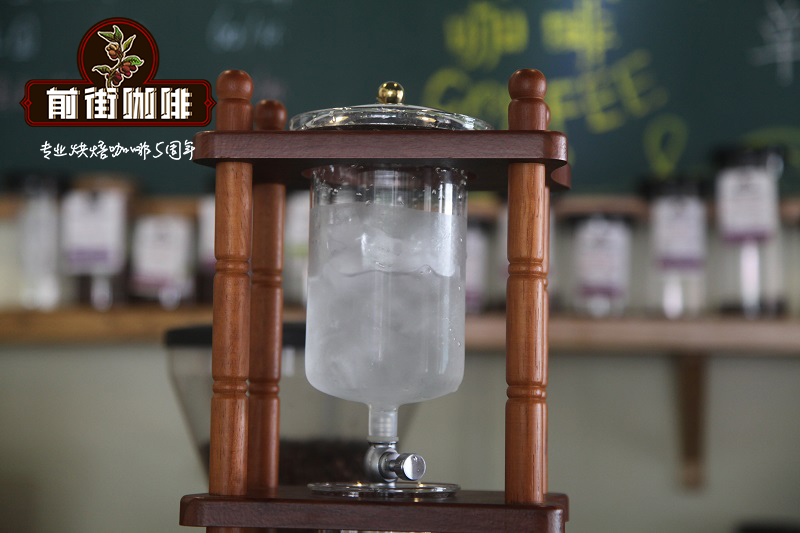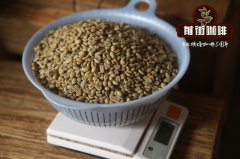Ethiopian Bishan Dimo Water washing Station Coffee introduces what brands Ethiopian coffee has

Professional coffee knowledge exchange more coffee bean information please follow the coffee workshop (Wechat official account cafe_style)
Bishan Dimo washing station
The story of the Yonis family begins with the warm and dry climate of Hara. Harald, the easternmost coffee-growing region of Ethiopia, is famous for its naturally processed coffee-due to water shortages in the region. Harari people are proud of their "amber beans", which refer to their yellow and golden naturally processed beans: Harari's trademark.
Faysel a. Born into a coffee-producing family, Yonis has enjoyed Ethiopia's rich coffee culture since childhood. He eagerly recalled the looming coffee tree in the front yard and the coffee ceremony his mother held for him every day. His father Abdosh Yonis owns two farms near the village of Chelenko. Unfortunately, Abdosh lost his farm during the infamous Derg regime (74 & # 39;-87 & # 39;).
In the late 1990s, Fayer became interested in the coffee market. He became a representative of coffee farmers, introducing their coffee to the local market. 10 years of experience has given Feyer enough confidence to start his own company: Testi Trading PLC. A company dedicated to purchasing specialty coffee in Ethiopia.
Testi Trading PLC
Testi has grown up; in terms of quality, quantity, people and experience. Testi is one of the leading exporters in the Ethiopian coffee market. In 2013, Mr. Abraham Seyoum, marketing manager of Testi, met with Wim van Kooten, a senior trader at Trabocca. The sample has been sent and the contract will be signed soon. Today, Testi and Trabocca operate several proven supply chains that offer unique specialty coffee.
About Bishan Dimo washing station
The Bishan Dimo washing station is located in Danbi Udik Bailey, which is part of Guji in Shakesovoda. Shakeso is a combination of hills and mountains that give the impression that the area is flat. But in fact, the altitude of this area has reached 2000masl.
The Guji are experienced cattle farmers. Coffee is often grown in the forest, and large tracts of land give cattle plenty of room to walk. Although Guji is famous for its cattle, it has developed into a coffee growing area. Entrepreneurs like Faysel are the drivers of this shift.
There are more than 800 small peasant families (an average of 5 children) around the Bishan Dimo base. These small plots of land typically cover an area of 1.5 hectares and are located in m.a.s.l between 1850 and 2050. Their coffee trees are covered by fake banana trees, and the semi-forest covers their farm.
The Bishan Dimo washing station opened in 2017. Although this is a new site, it has produced several amazing washing and natural lots. Feyer's younger brother, Hakemeyunis, is the manager of the TV station and is in charge of day-to-day operations.
The washed coffee is fermented in a clean cement tank for 24 to 48 hours. Then dry the parchment for 10 to 12 days. Dry naturally for 15 to 18 days, depending on the weather. If it rains, the workers will have to cover up the cherries and the drying will be delayed.
Faysel and Hakime plan to buy land from their neighbors so they can install more drying beds. More drying beds ensure that parchment and cherries can be dried more widely and evenly.
Technical information
Regional Guji
A mixed family heirloom
Height 1850-2050masl
Treatment water washing, sun exposure
Producer Faysel a. Yonis and Hakime Yonis
Flavor description
Lime
Succulent
Peach
Important Notice :
前街咖啡 FrontStreet Coffee has moved to new addredd:
FrontStreet Coffee Address: 315,Donghua East Road,GuangZhou
Tel:020 38364473
- Prev

Introduction to Kena Farm Coffee in Ethiopia what are the characteristics of Kena Farm Coffee
Professional coffee knowledge exchange more coffee bean information please follow the coffee workshop (Wechat official account cafe_style) Kena farm Daniel Tadis (Daniel Tadesse) is one of the pioneers of small coffee farmers to maintain the reputation of Guji (Ethiopia). He was born into a traditional Guji coffee family, deeply rooted in Dari Kidame; 's discovery in Hamballa Waamana woreda.
- Next

Ethiopia Yega Xuefei Borboya Water washing Station Coffee introduction what are the good producing areas of Yega Xuefei
Professional coffee knowledge exchange more coffee bean information please follow the coffee workshop (Wechat official account cafe_style) Borboya washing station is only a few miles from Yirgacheffe, you will find gf has a washing station in a place called Borboya. The company's owner, Gizaw Alemayehu, set up the 3. 2-hectare washing station in 1997. Gizaw's father.
Related
- Does Rose Summer choose Blue, Green or Red? Detailed explanation of Rose Summer Coffee plots and Classification in Panamanian Jade Manor
- What is the difference between the origin, producing area, processing plant, cooperative and manor of coffee beans?
- How fine does the espresso powder fit? how to grind the espresso?
- Sca coffee roasting degree color card coffee roasting degree 8 roasting color values what do you mean?
- The practice of lattes: how to make lattes at home
- Introduction to Indonesian Fine Coffee beans-- Java Coffee producing area of Indonesian Arabica Coffee
- How much will the flavor of light and medium roasted rose summer be expressed? What baking level is rose summer suitable for?
- Introduction to the characteristics of washing, sun-drying or wet-planing coffee commonly used in Mantenin, Indonesia
- Price characteristics of Arabica Coffee Bean Starbucks introduction to Manning Coffee Bean Taste producing area Variety Manor
- What is the authentic Yega flavor? What are the flavor characteristics of the really excellent Yejasuffi coffee beans?

